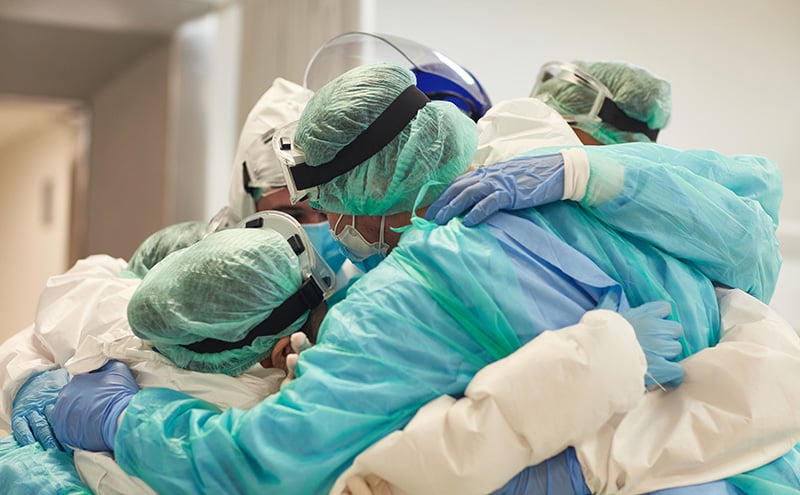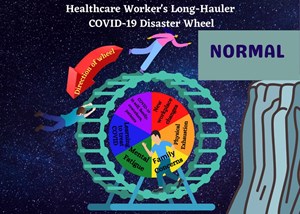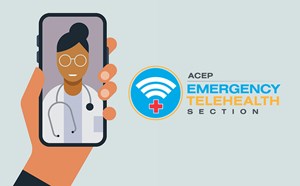
Disaster, Covid-19, and Resources
Lacey Menkin-Smith, MD, FACEP
South Carolina Chapter
Emergency department staff are accustomed to a high-stress environment filled with varying degrees of uncertainty. We never know what may come through the doors next, but we figure it out, treating our patients while often serving as a buffer for the remainder of the healthcare system. Yet even in this environment of uncertainty - whether working in a tertiary care center or a rural hospital - we typically know what resources are available, at least in our “home” hospitals. Alternatively, those who work in Disaster Medicine or Global Health often have experience managing available resources during a crisis, or in a location which requires adaptation. For years I have learned to work more efficiently in places like Haiti, Guyana and Uganda, where resources were often limited and unpredictable. But now, the COVID-19 pandemic has changed our home playing field.
Serving as the Director of High-Risk Infectious Disease for our tertiary care, academic emergency department, the pandemic forced me to take the lessons learned working in Global Health and apply them at home. And it was more challenging and uncomfortable than I expected. Like a lion-tamer who knocks off work and walks in to find a lion in his living room (and oh by the way, he’s your new roommate for the next two years and counting), the transition to dealing with limited and uncertain resources in our day-to-day work environment was unnerving. Early on, when PPE availability was constantly changing, protocols for what to use and when to use it needed adapting almost daily. As our knowledge and understanding of a novel virus changed so did the way we triaged, where we triaged, and how we cared for patients. As a specialty, we’ve been asked to care for an overwhelming number of sick patients with an underwhelming number of beds and staff.
The experience of coping with the way the pandemic has changed the landscape of emergency medicine reminds me quite a bit of my early experiences of learning to work in austere environments. Having reached what feels like the “adjustment phase” of the COVID-19 roller coaster, I am able to reflect on how many of the lessons learned from those years of Global Health experience proved useful.
Firstly, resiliency requires adaptability. Being comfortable with change may not come naturally, but it is a trait worth learning. Learn how to navigate without a paddle before you find yourself up the creek… without a paddle.
Take care of yourself. If you do not take care of yourself, you cannot take care of anyone else. In Global Health you come to appreciate the small things, like that one safe place you can escape to for a beer that’s actually cold. Find those simple escapes in your day-to-day.
When you are in the crisis phase, things can become overwhelming. Accept that this is normal, and it is temporary. When fighting an uphill battle, it often feels as if all your hard work is not making a difference. In these times it’s important to keep in mind that large accomplishments are almost always the aggregate of many small steps forward. As Helen Keller once said, “I am only one, but still, I am one. I cannot do everything, but still, I can do something; and because I cannot do everything, I will not refuse to do something that I can do.”
In any given shift, you may not be able to win the war - but allow yourself to recognize the small victories. And while you are only one, we as emergency physicians are many. And we are in this together.



